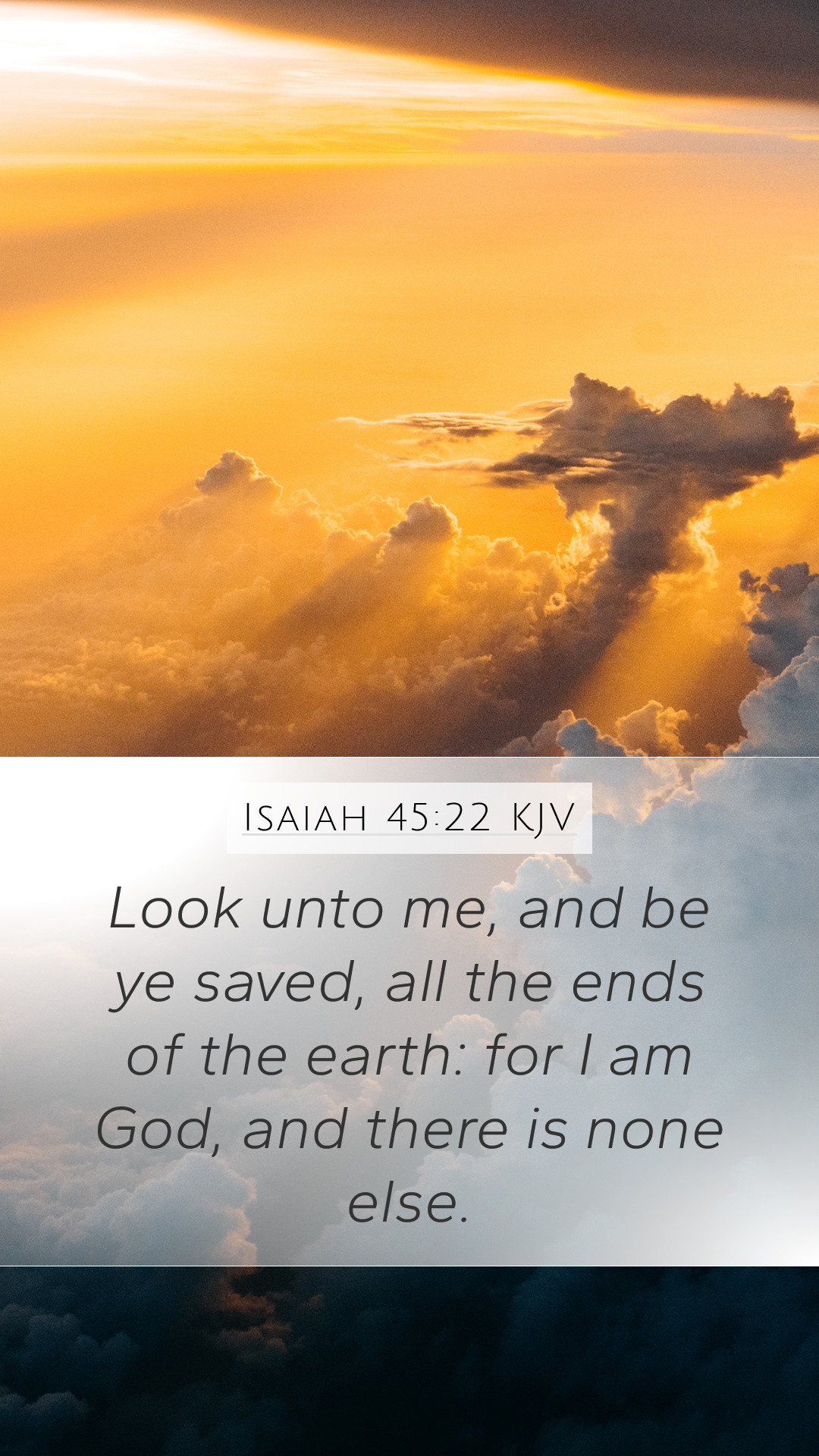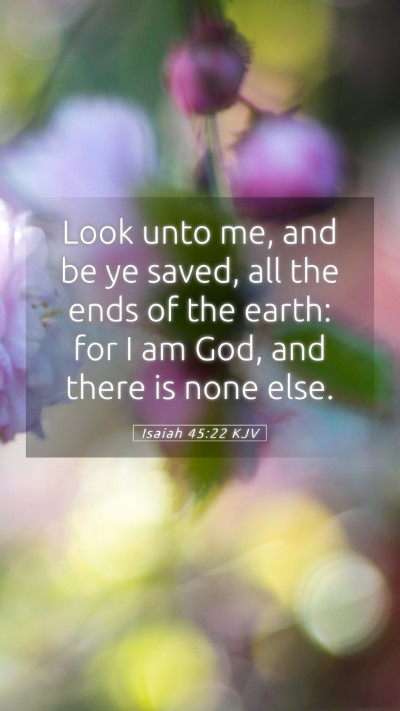Bible Verse Meaning and Interpretation of Isaiah 45:22
In Isaiah 45:22, we find a powerful invitation from God to all of humanity: “Look unto me, and be ye saved, all the ends of the earth: for I am God, and there is none else.” This verse emphasizes the universal call to salvation and the singularity of God. Below, we explore various insights and interpretations from respected public domain commentaries, which can aid in understanding Scripture, biblical exegesis, and the meaning of Bible verses.
Overview of Isaiah 45:22
This verse can be seen as a proclamation of God's sovereignty and a declaration of His desire for all people to turn to Him for salvation. It underscores the message that God is accessible to all – “all the ends of the earth,” indicating that His offer of salvation extends beyond Israel to all nations.
Insights from Commentaries
- Matthew Henry: In his commentary, Henry points out that the command to "look" signifies a call to faith and reliance on God. He underscores the fact that looking to God involves a recognition of His power and sufficiency to save. Henry observes that this verse encapsulates the essence of the Gospel, indicating that salvation is available to everyone, regardless of their past or background.
- Albert Barnes: Barnes elaborates on the significance of the phrase "all the ends of the earth." He emphasizes that God's message of redemption is not confined to a particular group but is for all humanity. He highlights that the term "look" is metaphorical, suggesting an inward gaze of faith where individuals turn away from their own efforts and instead rely wholly on God's grace for salvation.
- Adam Clarke: Clarke provides a historical context, emphasizing how this verse was particularly relevant during a time when the Israelites were in captivity and needed reassurance of God’s promise. He interprets “be ye saved” as an imperative that calls for immediate action and decision from the listeners. Clarke also suggests that the powerful affirmation "for I am God, and there is none else" serves to reinforce God's unique status as the sole deity, thus encouraging people to abandon idols and false hopes.
Theological Implications
The theological implications of Isaiah 45:22 are profound. The verse speaks to the heart of Judeo-Christian belief in monotheism and the importance of faith in God for salvation. It aligns with the themes found elsewhere in Scripture regarding God’s redemptive plan and His desire to be known and worshiped by all.
Application and Relevance
For contemporary readers and Bible study groups, this verse offers practical applications. It serves as a reminder of the wide-reaching scope of God’s love and the urgent call for individuals to engage in a personal relationship with Him. Here are some reflective questions for application:
- How can we effectively share the message of salvation to "all the ends of the earth" in our communities?
- In what ways can we "look" to God in our daily lives for direction and hope?
- What does it mean to you personally that God has called you to salvation?
Cross References
- John 3:16: "For God so loved the world, that he gave his only begotten Son, that whosoever believeth in him should not perish, but have everlasting life."
- Romans 10:13: "For whosoever shall call upon the name of the Lord shall be saved."
- Acts 2:21: "And it shall come to pass, that whosoever shall call on the name of the Lord shall be saved."
Conclusion
Isaiah 45:22 encapsulates the fundamental truth of God’s universal appeal for salvation, His unique deity, and the call to faith. By looking to God, believers are reminded that they have a Savior who is accessible and willing to receive those who seek Him. Through constant engagement with Bible study tools, groups, and resources, individuals can deepen their understanding of this and similar verses, enriching their faith journey.


